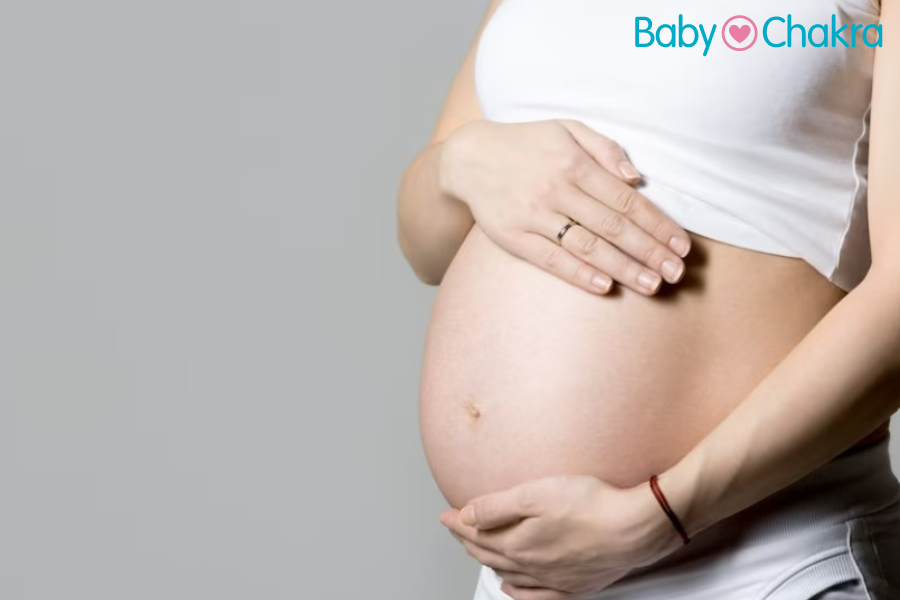
Ketones In Urine During Pregnancy: Is It Serious?
27 Feb 2023 | 6 min Read
Sudeshna Chakravarti
Author | 799 Articles
Ketones are produced when your body uses its fat reserves instead of glucose to produce the necessary energy to function. High levels of ketones in your urine can cause a condition called ketonuria. It is most common in people suffering from diabetes, particularly type 1 diabetes mellitus. But is it normal to find ketones in urine during pregnancy? If yes, how does this condition affect your pregnancy and baby? Read on to find out.
Is It Normal To Have Ketones In Urine During Pregnancy?
Ketonuria is common among pregnant and breastfeeding women and is usually caused due to starvation, fasting, or vomiting over a long period of time. While ketones may appear in your urine in trace amounts throughout pregnancy, excess levels of this acid could indicate gestational diabetes. The risk for this is high in women who have previously shown indications of pre-diabetes or are showing symptoms of gestational diabetes.
The best way to understand this condition is by consulting your healthcare provider, who can interpret whether the level of ketones in your urine is normal, or indicate an adverse maternal condition, such as diabetic ketoacidosis (DKA).
What Causes Ketones In Urine During Pregnancy?
During pregnancy, ketones may develop in your urine due to the following reasons:
- If you did not eat properly the previous
- If you are on a low-carbohydrate diet
- If you missed your bedtime snacks
- If you have extreme morning sickness or diarrhoea, which is leaving you dehydrated
- If you are fasting
- If you have an illness or an infection
- If you have gestational diabetes
- If you have been doing strenuous workouts
Does The Presence Of Ketones In Urine During Pregnancy Harm Your Baby?
An abnormal range of ketones in your urine can cause adverse effects on your baby. A study conducted by the National Library of Medicine states that ketones can easily cross the placenta and affect the central nervous system in your baby. It can also cause growth abnormalities, distortion of internal organs, and reduced volume. Studies have also revealed that high levels of ketones in urine can result in a reduction in lateral brain ventricles and cerebral cortex volume in the fetus.
However, more research is needed to determine the exact influence of ketones on fetal development. Hence, ensure to get regular check-ups to maintain a stable ketone level in your urine throughout pregnancy and prevent health conditions in your baby.
How To Detect Ketones In Urine During Pregnancy?
As high levels of ketones in your urine might indicate an underlying health condition, your doctor may recommend certain tests for clinical diagnosis if they notice the following symptoms.
- Unusual thirst
- High blood glucose levels
- Frequent bladder or vaginal infections
- Fatigue
If any of these symptoms are detected, your doctor will recommend a routine urine examination in each trimester to look for sugar, proteins, and ketones. These tests will help your doctor detect whether you have an already existing condition of ketonuria or gestational diabetes. If your doctor confirms gestational diabetes, then they will recommend lifestyle and diet changes to help maintain your blood glucose levels throughout pregnancy.
How To Test For Ketones In Your Urine At Home?
You can also test for ketones in your urine at home using a specialised testing kit. First, take your urine sample in a clean container, and then dip the strip given in the test packet, and dip into the sample. Take it out, and let the strip rest for a few minutes. You will also receive a colour chart with the test kit, so after the strip pad changes colour, use the chart to detect whether the ketone levels in your urine are low, moderate, or high.
How To Treat Ketonuria During Pregnancy?
Based on the results of your diagnostic tests, your healthcare provider might prescribe the following treatment options.
- If your blood sugar levels indicate gestational diabetes, your doctor might recommend dietary changes or prescribe insulin.
- If the ketonuria is caused due to an infection, your doctor might prescribe antibiotics or medications that are safe during pregnancy to treat your condition.
If you have traces of ketones in your urine due to changes in your diet or prolonged vomiting, as an effect of morning sickness, then you may not need any medical intervention, as this condition resolve on its own.
Treatment For Ketones in Urine During Pregnancy
We have listed a few simple steps that you can incorporate into your lifestyle to maintain the level of ketones in your urine during pregnancy.
- Do not skip your meals
- Have snacks in between your meals
- Do not cut down on carbs during pregnancy
- Include protein-rich foods in your diet
- Exercise regularly and stay active to reduce the risk of gestational diabetes
Conclusion
While it is normal to have minute levels of ketones in urine during pregnancy, high levels of the acid can indicate underlying health conditions like gestational diabetes. Ketones in trace amounts can be corrected through lifestyle and dietary changes, but higher levels of ketone in your urine may necessitate prompt medical assistance. Avoid skipping your meals, include carbohydrate and protein-rich foods in your diet, stay active, and exercise regularly to keep the ketone levels in your urine maintained.
Pro-Tip
Welcoming your newborn soon? Get your hands on the best baby care products made with 100% natural ingredients.
Moisturising Creamy Bathing Bar
Also Read:
Brown discharge during pregnancy: What does brown discharge during pregnancy indicate? Get all the details here.
Double marker test in pregnancy: Should you opt for a double marker test in pregnancy? Tap this post to know.
TIFFA scan in pregnancy: Here’s everything you need to know about TIFFA scan and what it indicates about your pregnancy and baby.
Cover Image Credit: Freepik.com
A


Related Topics for you
Suggestions offered by doctors on BabyChakra are of advisory nature i.e., for educational and informational purposes only. Content posted on, created for, or compiled by BabyChakra is not intended or designed to replace your doctor's independent judgment about any symptom, condition, or the appropriateness or risks of a procedure or treatment for a given person.



